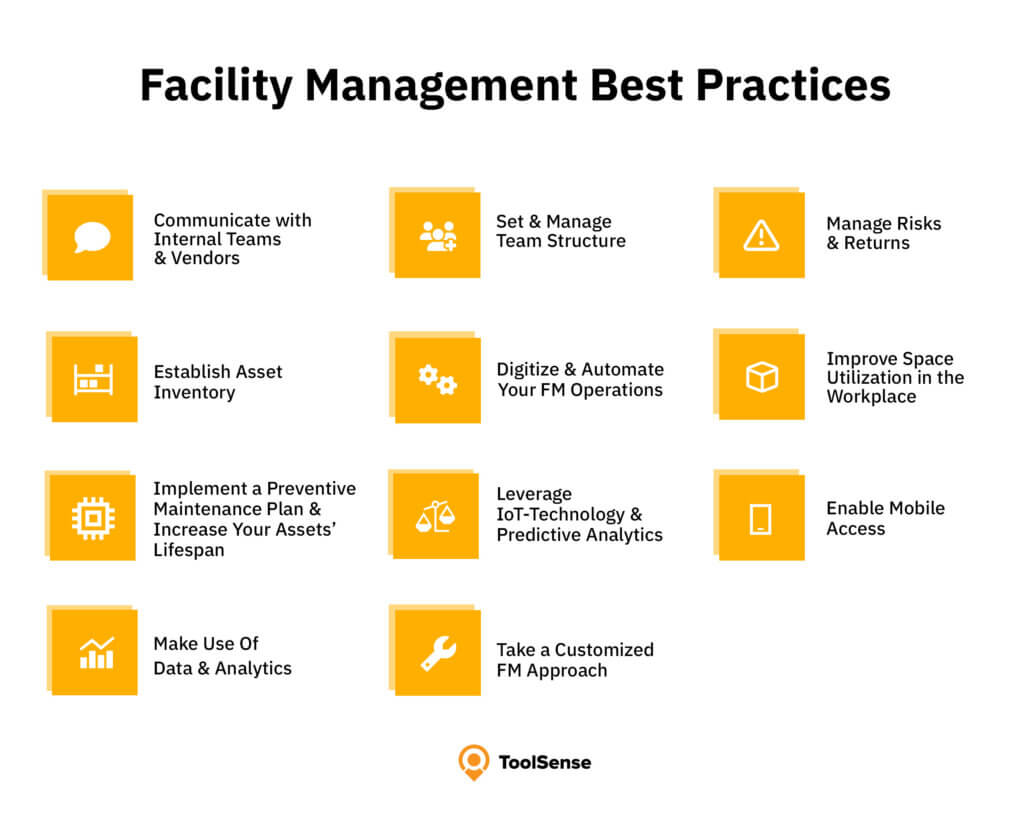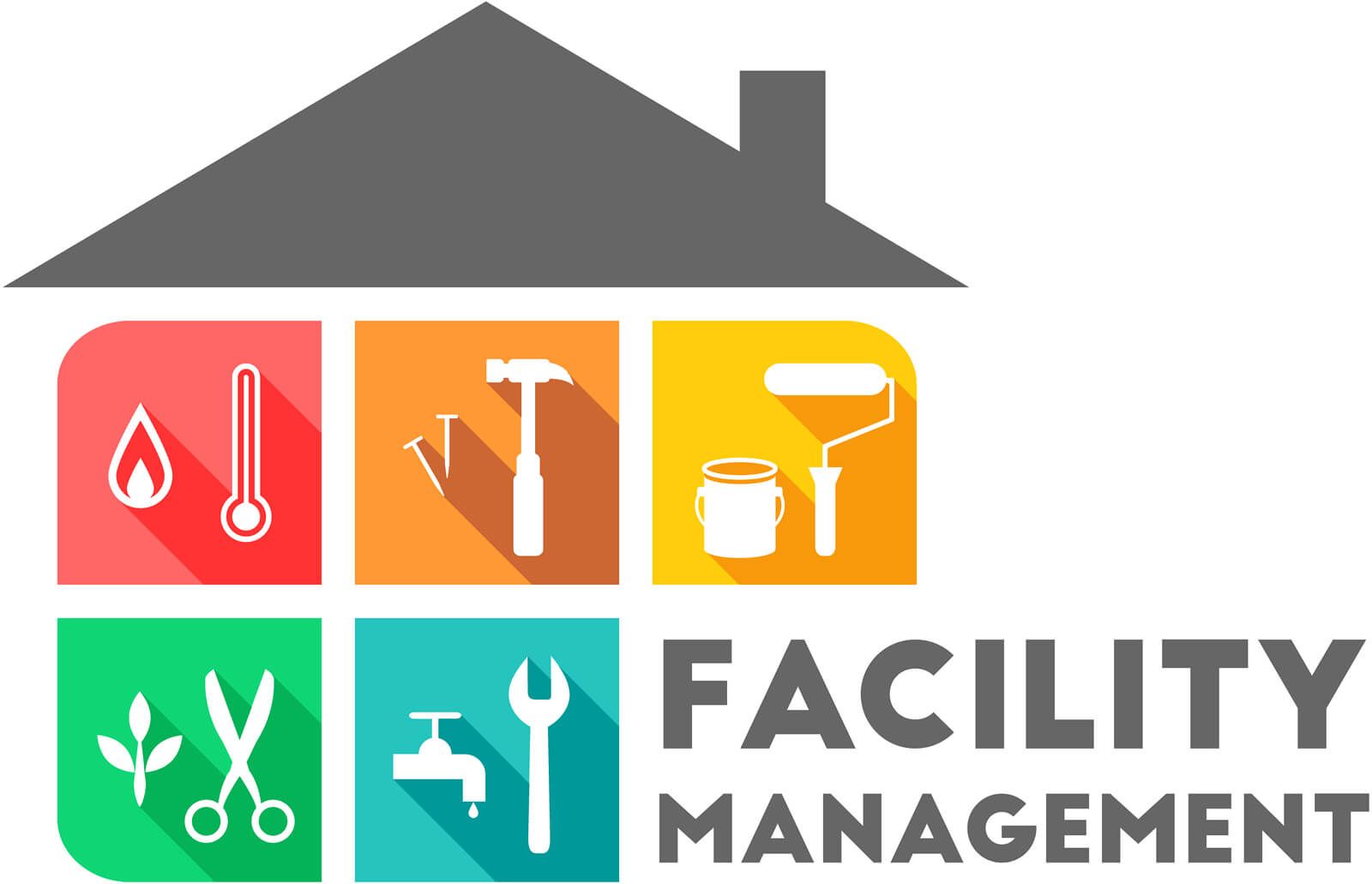Why Total Facility Management Is Vital for Company Success
Total Facility Management (TFM) serves as a keystone for company success by harmonizing diverse operational elements such as upkeep, space usage, and security procedures. As companies navigate an affordable landscape, comprehending the multifaceted benefits of TFM can be pivotal in driving expense performance and enhancing worker performance.
Recognizing Total Facility Management
Total Facility Management (TFM) includes a thorough method to taking care of a company's structures and linked solutions to make sure optimum functionality, safety and security, and performance. TFM incorporates different techniques, including upkeep, operations, space management, and security procedures, to create a natural framework that sustains a company's core objectives.
At its core, TFM aims to improve the procedures involved in facility management, enhancing and decreasing redundancies solution delivery. This approach includes the sychronisation of tasks related to residential property management, such as fixings, cleansing, and power management, to foster a productive setting for staff members and stakeholders alike. TFM also highlights the value of applying finest practices and ingenious modern technologies to improve service high quality and decrease operational prices.
By lining up facility management tasks with organizational objectives, TFM boosts total performance while making certain conformity with health and wellness, security, and ecological regulations. Hence, TFM offers not just as a logistical feature yet also as a tactical property, adding to an organization's long-lasting sustainability and growth.
Trick Benefits of TFM
Leveraging an extensive approach, organizations that implement Total Facility Management (TFM) unlock a myriad of advantages that add to total company success. Among the main advantages of TFM is the improvement of operational effectiveness. By settling facility solutions under a unified management structure, organizations can streamline procedures, lower redundancies, and boost interaction throughout divisions.
In addition, TFM promotes a proactive upkeep method, which minimizes downtime and expands the lifespan of facilitiess and devices (Total Facility Management). This aggressive method not only improves performance yet also fosters a more secure working environment, inevitably resulting in higher staff member complete satisfaction and retention prices
In addition, TFM helps with far better resource appropriation by giving insights into facility performance metrics. Organizations can identify areas for renovation, permitting them to make informed choices that align with their calculated objectives.
TFM and Cost Effectiveness
Attaining expense effectiveness is a fundamental objective for companies, and Total Facility Management (TFM) plays a crucial duty in this endeavor - Total Facility Management. By integrating numerous facility services under a solitary management framework, TFM enables organizations to streamline procedures and reduce redundancies. This alternative method leads to considerable cost financial savings, as it eliminates the requirement for multiple vendors and simplifies purchase procedures
Additionally, TFM promotes proactive maintenance approaches, which minimize the risk of expensive fixings and downtime. By prioritizing precautionary procedures, companies can extend the lifespan of their possessions and minimize unforeseen expenses. Additionally, TFM includes power management techniques, which can drastically cut energy costs with efficient resource usage.
The centralization of data and analytics within TFM permits organizations to make educated economic choices. By recognizing patterns and locations for improvement, TFM enables customized strategies that additionally improve cost management. Furthermore, the scalability of TFM solutions ensures that as organizations expand, their facility management techniques stay efficient and aligned with financial goals.
Enhancing Employee Efficiency
A well-managed facility can dramatically enhance worker performance by creating a conducive workplace. Reliable Total Facility Management (TFM) ensures that all elements of the office-- from illumination and temperature to tidiness and safety-- are enhanced. When staff members operate in a room that is comfy and well-maintained, they are a lot more likely to concentrate on their jobs, leading to greater result and task complete satisfaction.
In addition, TFM can boost collaboration via the critical design of public areas, encouraging synergy and technology. By buying the ideal resources and innovation, companies can assist in seamless communication that site and streamline operations, better enhancing efficiency. Normal maintenance and punctual actions to facility concerns stop disturbances that could or else impede performance.
Additionally, a healthy and secure job atmosphere, supported by TFM practices, reduces absence and advertises wellness, directly associating with enhanced productivity levels. Inevitably, focusing on facility management is an investment not only in physical assets yet additionally in the workforce itself. By fostering an atmosphere that supports staff member needs and preferences, organizations can grow a more engaged and efficient workforce, driving total success and competitive advantage.

Future Trends in TFM
Embracing technical advancements is established to reshape the landscape of Total Facility Management (TFM) in the coming years. As the need for effectiveness and sustainability rises, TFM will increasingly adopt wise building innovations, incorporating Net of Points (IoT) devices to check and take care of facility operations in real-time. This change will certainly enable positive upkeep, substantially improving and minimizing functional prices solution shipment.

Sustainability remains a crucial emphasis, with TFM specialists anticipated to prioritize green methods. This includes utilizing eco-friendly power sources and enhancing waste management systems to decrease the carbon footprint of facilitiess.
Remote management capacities will certainly also be broadened, allowing facility supervisors to look after procedures from basically anywhere. This adaptability will become essential as organizations adapt to crossbreed job models. In recap, the future of TFM is positioned for change through modern technology, sustainability, and enhanced functional strategies, ensuring businesses stay affordable in a progressing landscape.
Conclusion
By integrating numerous operational functions, TFM boosts performance and lines up facility management with organizational purposes. As businesses increasingly adopt lasting practices and ingenious innovations, the relevance of TFM will certainly continue to grow, ensuring lasting operational efficiency and competitiveness in a progressing industry.

Comments on “How Total Facility Management Can Improve Efficiency and Minimize Costs”